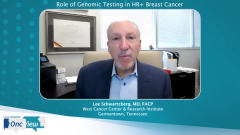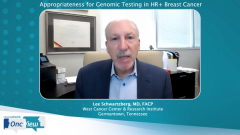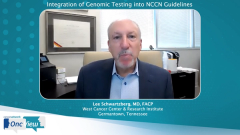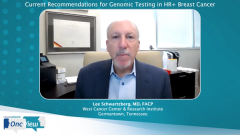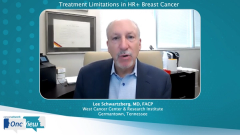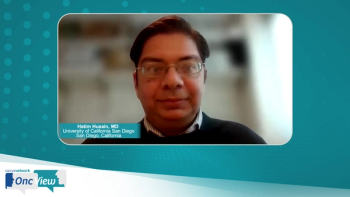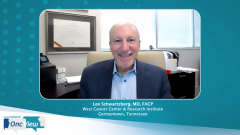
Extended Adjuvant Therapy for HR+ Breast Cancer
The rationale for treating patients with early stage HR-positive breast cancer with extended adjuvant therapy based on lessons learned through clinical trial evidence and real-world practice.
Episodes in this series

Kristie Kahl: Dr. Schwartzberg, welcome to Cancer Network®’s OncView program titled NCCN guideline updates in hormone receptor-positive [HR+] breast cancer. With a focus on extended adjuvant therapy. We are joined by Dr. Lee Schwartzberg from West Cancer Center & Research Institute. Welcome and let us begin. Dr. Schwartzberg, why is the decision about whether to use extended adjuvant therapy so important? And what are the considerations?
Lee Schwartzberg, MD, FACP: Kristie, when we think about early-stage breast cancer, we focus on the subgroups that are candidates for endocrine therapy. The largest subgroup, about two-thirds of patients, are hormone receptor that is either estrogen receptor or progesterone receptor, or both positive, and HER2 [human epidermal growth factor receptor 2]-negative. An additional 10% or 15% are HR+ and HER2+. And after they finish adjuvant chemotherapy and anti-HER2 therapy, they are also candidates for endocrine therapy. When you think about the initial treatment of patients after chemotherapy or without chemotherapy, the issue is that endocrine therapy is very well-tolerated as a whole and has a tremendous amount of benefits for patients. Essentially any patient who is HR+ is a candidate for this treatment. The standard treatment is 5 years of adjuvant endocrine therapy. That could either be Tamoxifen or an aromatase inhibitor or ovarian function suppression in premenopausal women with one of those classes of agents. What we’ve learned over time is there is a carryover effect of endocrine therapy. So it continues to work beyond the 5 years that the patient takes the treatment. And through about year 10 it continues to widen the difference between recurrence of disease and not in patients who are HR+. But after that time, the effect basically is lost and there is no further benefit. That led to a lot of studies in the 1990s and early 2000s about extending adjuvant endocrine therapy. Going from 5 years to 7 years or, in most cases, to 10 years of adjuvant endocrine therapy. These trials did show that there was a benefit to extended adjuvant therapy. The overall benefit was modest in terms of absolute benefit several percent. But for an individual woman to not have her cancer come back, and particularly not have her cancer come back in a distant site and therefore present metastatic disease, is important. We spent our time since these trials were performed trying to figure out who were the best candidates for extended adjuvant therapy. And a lot of work has been done in that area. In selecting patients, we hope to do a good job to minimize the toxicity of extended therapy and also maximize the benefit in terms of invasive disease-free survival and improve that.
Transcript edited for clarity.
Newsletter
Stay up to date on recent advances in the multidisciplinary approach to cancer.


